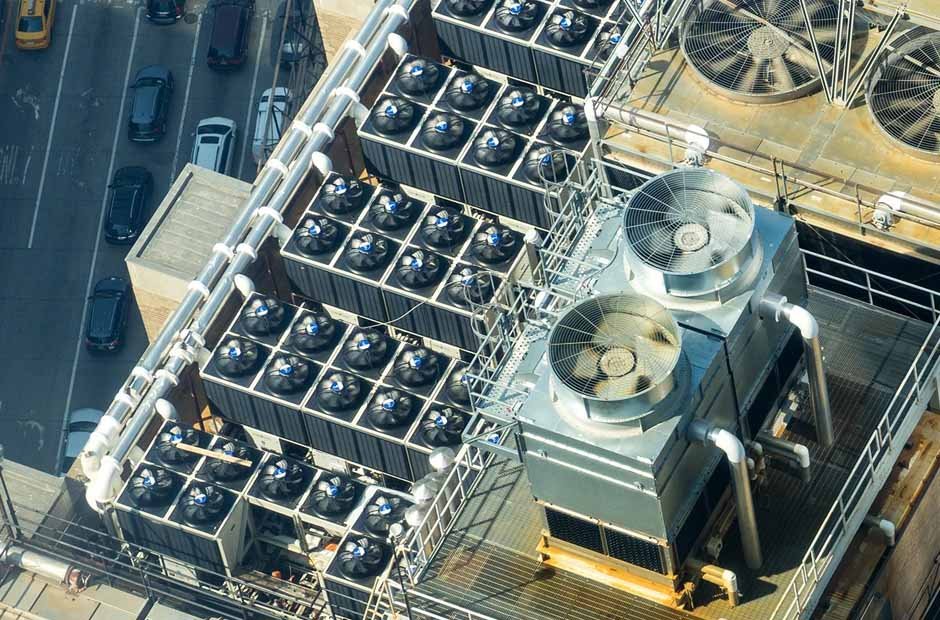Air conditioning has become a staple feature of our modern lives, providing comfort and relief from the overwhelming heat. However, the convenience of air conditioning comes at a significant cost to the environment. The energy consumption and refrigerants used in air conditioning systems contribute to greenhouse gas emissions and exacerbate climate change. In this article, we will explore the environmental impact of HVAC units and discuss practical ways to limit its effects, promote sustainability, and reduce your carbon footprint.
Energy Consumption: A Growing Concern
Air conditioners are energy-intensive appliances that rely on electricity primarily generated by burning fossil fuels. The increasing demand for air conditioning, particularly in warmer regions and during high-temperature seasons, has led to a substantial increase in energy consumption. This heightened energy demand puts a strain on power grids, leading to higher carbon emissions from energy facilities. To limit this environmental impact, we must adopt energy-efficient practices and technologies such as…
- Opt for Energy-Efficient Air Conditioners: Select air conditioners with excellent energy efficiency ratings when making a purchase. Ensure the device satisfies energy efficiency standards, as seen on the Energy Star label. Electricity use and greenhouse gas emissions can both be greatly reduced by using energy-efficient air conditioners.
- Proper AC Installation and Maintenance: Ensure that your air conditioning system is installed properly and kept in working order. Energy efficiency can be maximized and environmental effects can be decreased with proper insulation, routine filter cleaning or replacement, and periodic maintenance.
- Set the Temperature Wisely: Adjusting the thermostat by a few degrees can make a noticeable difference in energy consumption. Keep the temperature as high as comfortably possible during the summer months, reducing your air conditioner’s workload and saving energy.
Refrigerants: The Hidden Climate Culprits
Air conditioning systems rely on refrigerants to cool and regulate indoor temperatures. Older refrigerants, such as hydrochlorofluorocarbons and chlorofluorocarbons, have been phased out of modern cooling systems due to their destructive impact on the ozone layer. However, their replacements, hydrofluorocarbons, are potent greenhouse gases that also contribute to global warming. Here are some ways you can be conscious of the refrigerants in your cooling system…
- Transition to Environmentally Friendly Refrigerants: Manufacturers have developed alternative refrigerants with lower global warming potential. Consider upgrading your air conditioning system to use refrigerants like HFOs, which have significantly reduced the environmental impact of HVAC systems.
- Proper Disposal and Recycling of Refrigerants: When replacing or disposing of an old air conditioning unit, it is imperative that the refrigerant is handled responsibly. Improper disposal can lead to refrigerant leakage, another contributor to global warming. Consult an AC company that can safely extract and recycle the refrigerant.
Sustainable Cooling Alternatives
While air conditioning is undoubtedly effective in cooling indoor spaces, it is far from the only solution. Exploring sustainable cooling alternatives can reduce our reliance on air conditioning, thereby lessening the environmental impact.
- Natural Ventilation: In mild climates or during cooler times of the day, utilize natural ventilation to cool your home. Open windows and fans create cross-ventilation to circulate fresh air throughout your living spaces.
- Passive Cooling Techniques: Utilize passive cooling techniques such as shading, insulation, and reflective coatings that reduce heat gain in buildings. These help maintain cooler indoor temperatures, reducing the need for excessive air conditioning.
- Renewable Energy Sources: Consider running your air conditioning system on renewable energy, such as solar panels or wind turbines. By doing so, one can significantly reduce the carbon footprint associated with cooling their home or office.
Education and Awareness
Promoting education and awareness about the environmental impact of air conditioning is crucial to encouraging individuals and communities to take action. Anyone, from governments to organizations to individuals, can play a role in spreading information and fostering sustainable practices. Here are some examples below…
- Government Policies: Governments should introduce and enforce regulations that promote energy efficiency and environmentally friendly technologies. Additionally, they can provide incentives for individuals and businesses to adopt sustainable cooling solutions.
- Education and Outreach: Educational institutions and environmental groups are encouraged to raise awareness about the environmental impact of air conditioning through campaigns, workshops, and educational materials. Exchanging knowledge about sustainable cooling practices can empower individuals to make informed choices and improve the health of our planet.
- Personal Responsibility: Any individual can contribute to limiting the impact of air conditioning by adopting energy-efficient practices, supporting sustainable living, and educating others about the importance of environmental stewardship.
Prioritizing Responsible AC Practices for a Brighter Future
Recognizing and addressing their environmental impact is crucial as our reliance on HVAC systems increases. We can lessen the damaging effects of air conditioning on the environment by implementing energy-efficient practices, switching to environmentally friendly refrigerants, investigating sustainable cooling alternatives, and fostering education and awareness.
In conclusion, achieving a balance between comfort and environmental responsibility requires collective action. By adopting energy-efficient practices, transitioning to environmentally friendly refrigerants, exploring sustainable cooling alternatives, and promoting education and awareness, we can mitigate the negative effects of air conditioning on the environment. Each individual’s actions, from making informed choices when purchasing air conditioners to practicing energy conservation, significantly reduce greenhouse gas emissions and promote a sustainable future. Let’s strive for a balance between comfort and environmental responsibility, ensuring a better planet for future generations.

